6. Donnie Darko (Richard Kelley, 2001)
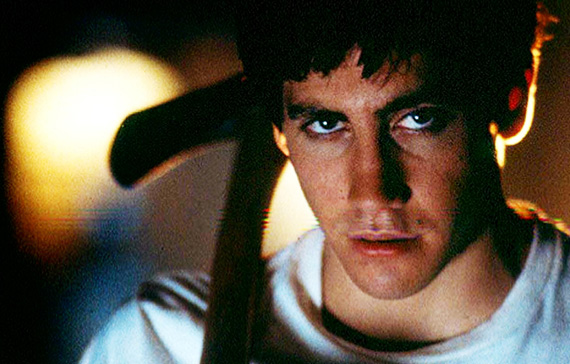
Donnie Darko has reached cult status as one of the most confusing movies of all time; and writer/director Richard Kelley will forever be remembered as the man that messed with our heads big time through a bizarre, almost dreamlike experience.
This is also Jake Gyllenhaal’s breakthrough performance as the moody teenager Donnie Darko. Other members of the cast are Jena Malone as Gretchen, Drew Barrymore as Ms. Pomeroy, and his sister Maggie Gyllenhaal is portraying his sister, Elizabeth. All the performances are spot on and the movie wouldn’t be anywhere near its current cult classic status without the amazing cast.
This genre-defying movie is about a troubled youth (Jake Gyllenhaal) with severe mental problems that starts hallucinating about a freaky bunny named Frank. In the aftermath of a jet engine crashing in Donnie’s room and Frank saving Donnie’s life (by willing him out of the house beforehand), the bunny becomes more demanding and starts pushing the teenager to do bad things.
Donnie Darko deals with themes of time-travel and time-traveling objects that disrupt the flow of reality, quantum physics, paradoxes, madness and religion.
There are different timelines in this movie that influence and disrupt each other – therefore a lot of butterflies flapping or not flapping their wings depending on the reality sequence. For example, if Frank didn’t push Donnie to a certain misdeed, other characters wouldn’t feel the consequences.
The movie was actually re-released in 2004 as a Director’s Cut with 20 extra minutes added for enriching the material – but not for providing more clarity. And that’s okay. The reason why Donnie Darko works so well and that it’s quoted by many as their favourite movie, lays precisely in the confusion, in the theories and the rolling over all night trying to figure out “what does it all mean?”.
7. 12B (Jeeva, 2001)
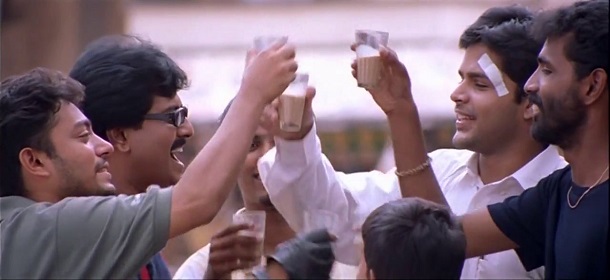
12B is the directorial debut of highly acclaimed Tamil cinematographer Jeeva. He’s the writer, director and cinematographer of this 2001 flick.
The movie gets its name from a bus route in Chennai, making the route 12B the focal point of the narrative. While both 12B and Sliding Doors hold thematic and narrative similarities – aside from a few key moments when Jeeva’s creative input reaches zero and “similarity” becomes “the same” –, they do have some differences.
For one, the main character is played by a male lead. Shakthi (Shaam) leaves his house one morning to go to an interview. In order to get there, he needs to board bus 12B.
Will he catch the bus or miss it? The butterfly effect theory comes into play when a narrator announces that we are about to examine both possible outcomes from this seemingly unimportant event. The narrative then splits into two alternate realities that show us the different life paths taken by Shakthi following the bus incident.
Another difference is, of course, that the Kollywood (no, it’s not a misspell) romantic comedy-drama is sprinkled with musical moments. But the most interesting thing about this movie, and the only part that seems truly original, is that these two possible courses of Shakthi’s life end up morphing into one: Shakthi 1 tinkers with the course of life of Shakthi 2.
12B got generally good reviews in India, and has a 6.3 rating on IMDB. But is it worth watching? Yes, as long as you don’t watch it expecting greatness.
Watch it for its good choreography, Tamil humour, charming characters and the tiny original sci-fi idea that pushes the boundaries of this alternate-lives-plagued-by-chaos story. And because it’s another movie to add to your butterfly effect collection.
8. Chaos Theory (Marcos Siega, 2008)
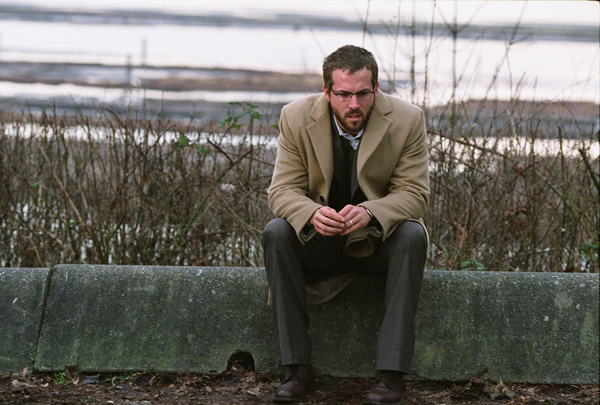
In this American dramedy the chaos theory is at the core of one man’s rapidly descending happiness and stability (to put it mildly).
The story centres Frank (Ryan Reynolds), a motivational speaker obsessed with punctuality. His wife Susan (Emily Mortimer) doesn’t share his enthusiasm for an overly scheduled life and attempts to ease him up a bit.
To do that, she turns the clock back 10 minutes in an attempt to give her husband more time one very important morning. She accomplishes the opposite and Frank ends up missing the ferry – yet another butterfly effect movie that borrows on the idea of missed public transport that causes unexpected changes in the characters’ lives.
Only in Chaos Theory there are no alternate realities or parallel universes. There’s no magic realism, no time-travel or sci-fi, it’s just real life at its messiest.
The story thematically plays on both definitions of chaos – as a noun and as a theory. As a general definition, chaos refers to randomness and disorder. Its scientific meaning is dynamic instability, which tackles the unpredictability of complex systems and their interactions and points to the butterfly effect theory.
The movie’s tagline: “What if your life was completely in order? What if it all is about to change, by accident?” gives us an earlier clue on this conceptual playfulness.
Marcos Siega’s third directorial feature (apart from his TV involvement) is not an intellectual attempt, but a pure-blooded American comedy, with the platitudes and turn of events that Hollywood has gotten us used to. But that doesn’t mean you won’t enjoy this flick.
Especially when its stars are the likable Ryan Reynolds and Emily Mortimer and the movie’s takeout is to “say yes to whim, say yes to chance, say yes to chaos”. How can you say “no” to that?
9. Mr. Nobody (Jaco Van Dormael, 2009)
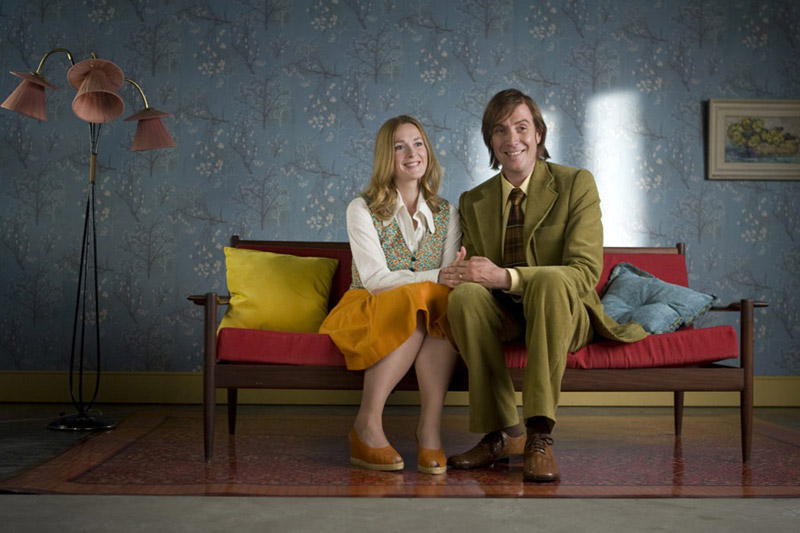
From one of cinema’s most original filmmakers, Mr. Nobody is a dazzling sci-fi epic. Written and directed by Jaco Van Dormael, the sci-fi romantic drama is a truly complex and artistic movie, one that taps into numerous themes and makes use of fantastic visual effects.
At the age of 9, Nemo Nobody (portrayed as an adult by multitalented Jared Leto) has to make a decision of whether to stay with his father or move away with his mother. Standing on the train platform, the boy is unable to make a choice and thus creates infinite possibilities for himself.
The movie goes on exploring all the possible outcomes in a nonlinear fashion, jumping from mysterious old Nemo from year 2092, to adult, teenage and young Nemo born in 1975 – each with their own parallel lives. Like in Blind Chance, we again encounter the train leitmotif as the marker of the deciding event of the story.
Mr. Nobody is deeply philosophical and explorative, getting inspiration not only from the butterfly effect theory (a leaf’s journey causing Nemo’s parents meeting), but also from chaos theory and quantum mechanics, exploring everything from matter to events and chain reactions.
In an interview with Collider in 2013, the Belgian director claimed that “the film is very simple, it resembles the way we think, with multiple possibilities. It’s like having a phone call while, at the same time, having a conversation on the computer while, at the same time, watching a film.”
A strange film with an even stranger journey, Mr. Nobody packs a lot of themes and ideas of countless “what if” scenarios, alternate lives, sci-fi, romance and drama in a very intelligent and thought-provoking manner.
10. About Time (Richard Curtis, 2013)
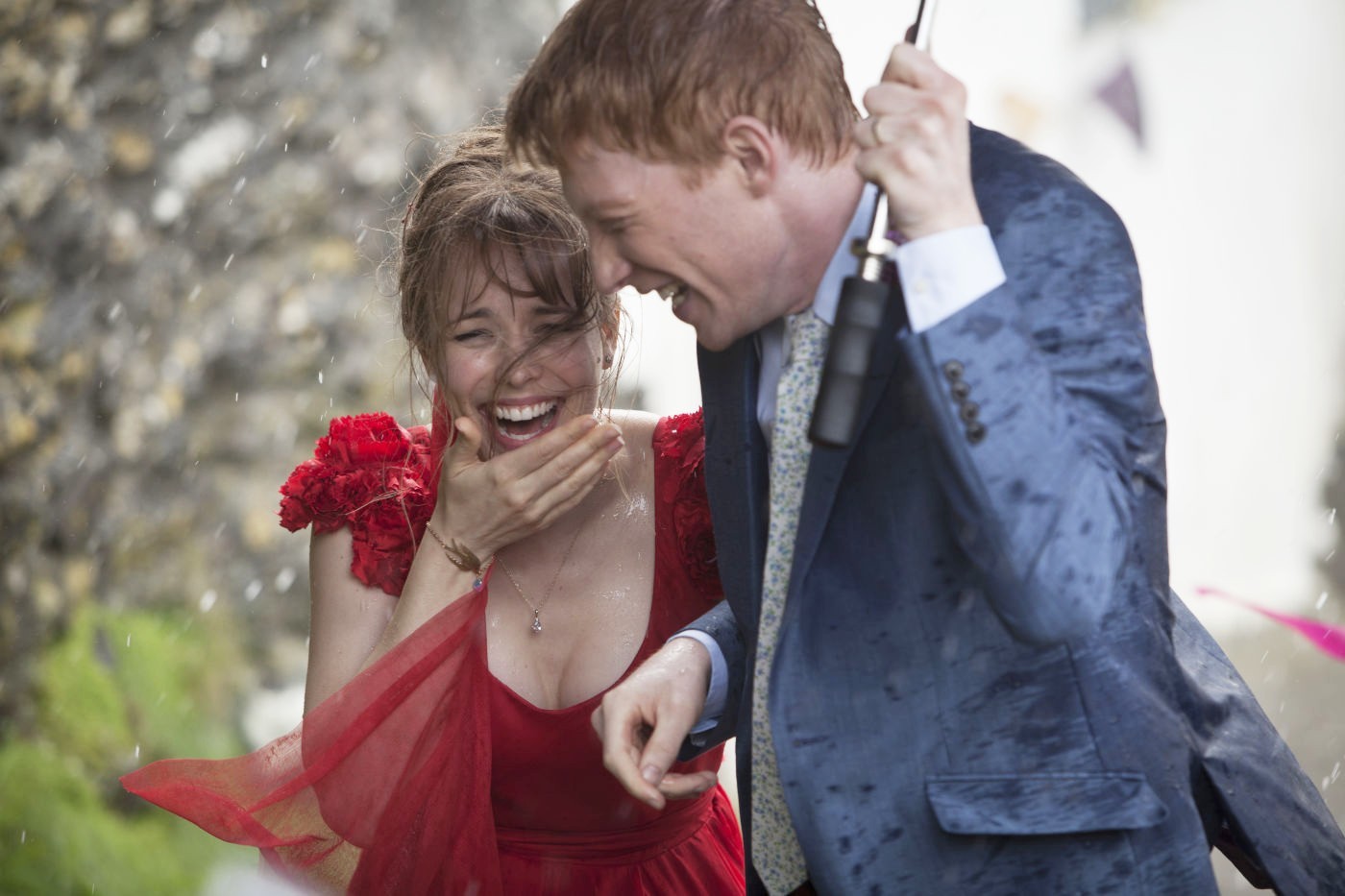
Richard Curtis’ third directorial feature after Love, Actually and The Boat That Rocket, brought us a charming, time-travel infused romantic comedy, with a fresh take on modern love.
Tim, a lonely 21-year-old youth, finds out that he has the ability to travel in time. So there goes, with this revelation and newfound superpower, our hero decides to go on a love quest. All he really wants is a girlfriend and the stability that comes with a relationship. But is his time travel ability that hinders his efforts and it’s the same ability that ultimately aids him.
It is also the time travel bit that gets messy and shifts into the butterfly effect territory. The movie proves its support of the theory by showing us that even when we think we can escape every day’s randomness by going back through time and carefully forging a new path, even then the butterfly will flutter its wings and cause other unforeseen events.
About Time stars Domhnall Gleeson as Tim – who’s had a fantastic 2015, acting in Ex-Machina, The Revenant, Star Wars: The Force Awakens and Brooklyn –, Rachel McAdams as Mary, the wooee – Oscar nominated actress and rom-com poster girl for The Notebook, The Time Traveler’s Wife and Aloha – and Bill Nighy as Tim’s dad in one of his most endearing roles since Love, Actually.
The great revelation of this movie is that the main focus of the story is not actually romantic love. Richard Curtis takes a page out of Hitchcock’s book in Psycho and kills off the main character (“the quest for love”) in the first part of the movie.
The actors give outstanding performances and the chemistry between Domhnall Gleeson and Rachel McAdams is palpable. The soundtrack is perfect, and for those of you that enjoy this genre, you will be greatly rewarded.
For those of you sci-fi lovers that are considering watching this movie only for its time travel narrative: don’t. You will be disappointed. The idea is messy, the rules are broken and in the end the theory lacks logic.
In a nutshell, About Time is a wonderful story about family, love and what it means to live a life that you’re proud of, with or without the benefit of traveling thorough time. This story is more than a time-travel romantic comedy, it is a meditation on relationships, on decisions and living.
Honorable Mentions: Jurassic Park, Frequency, Looper.
Author Bio: Clara Nicolaescu is a full time adventurer passionate about storytelling. When she’s not geeking out watching movies, she’s a digital and writing wizard.